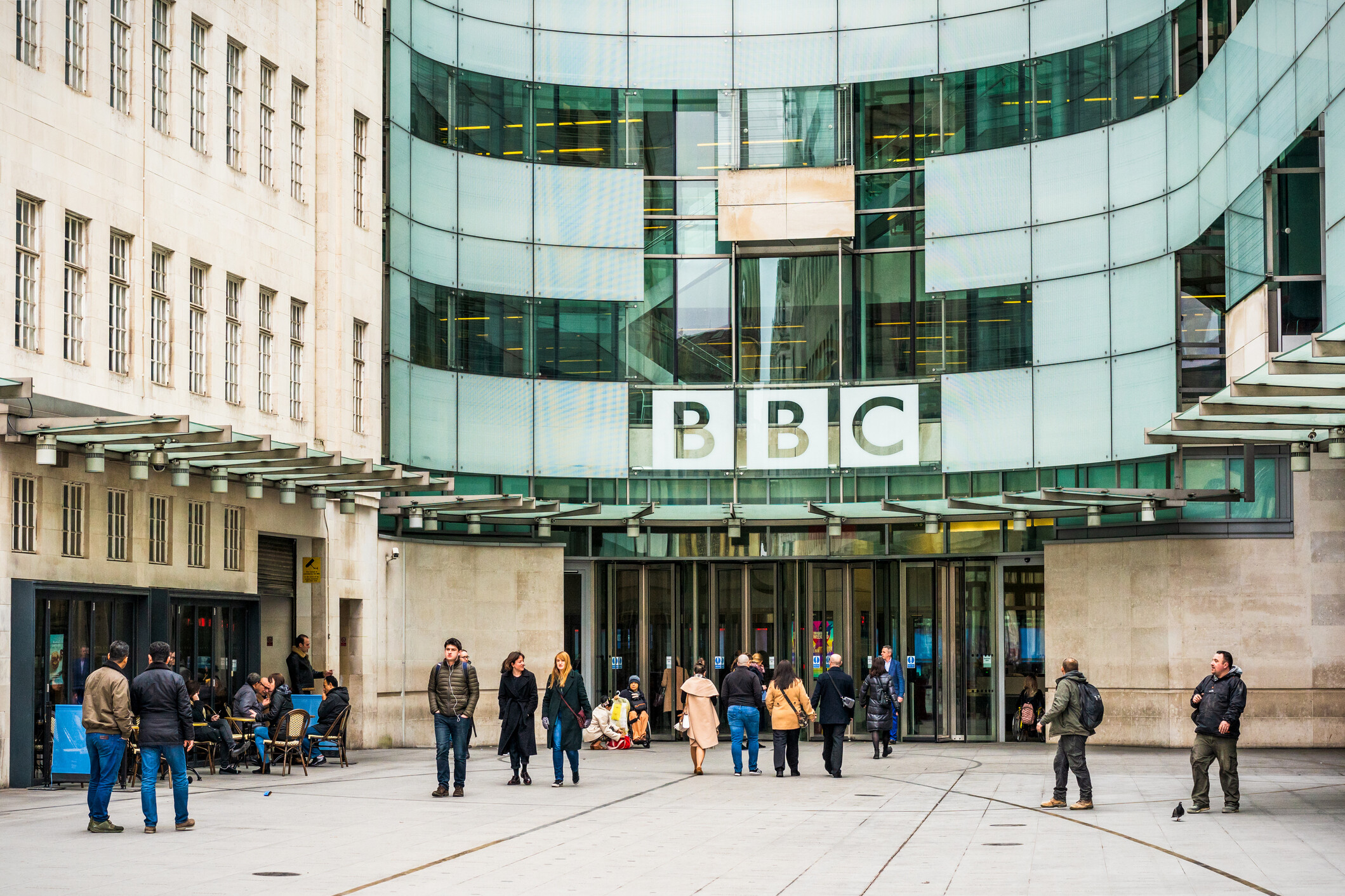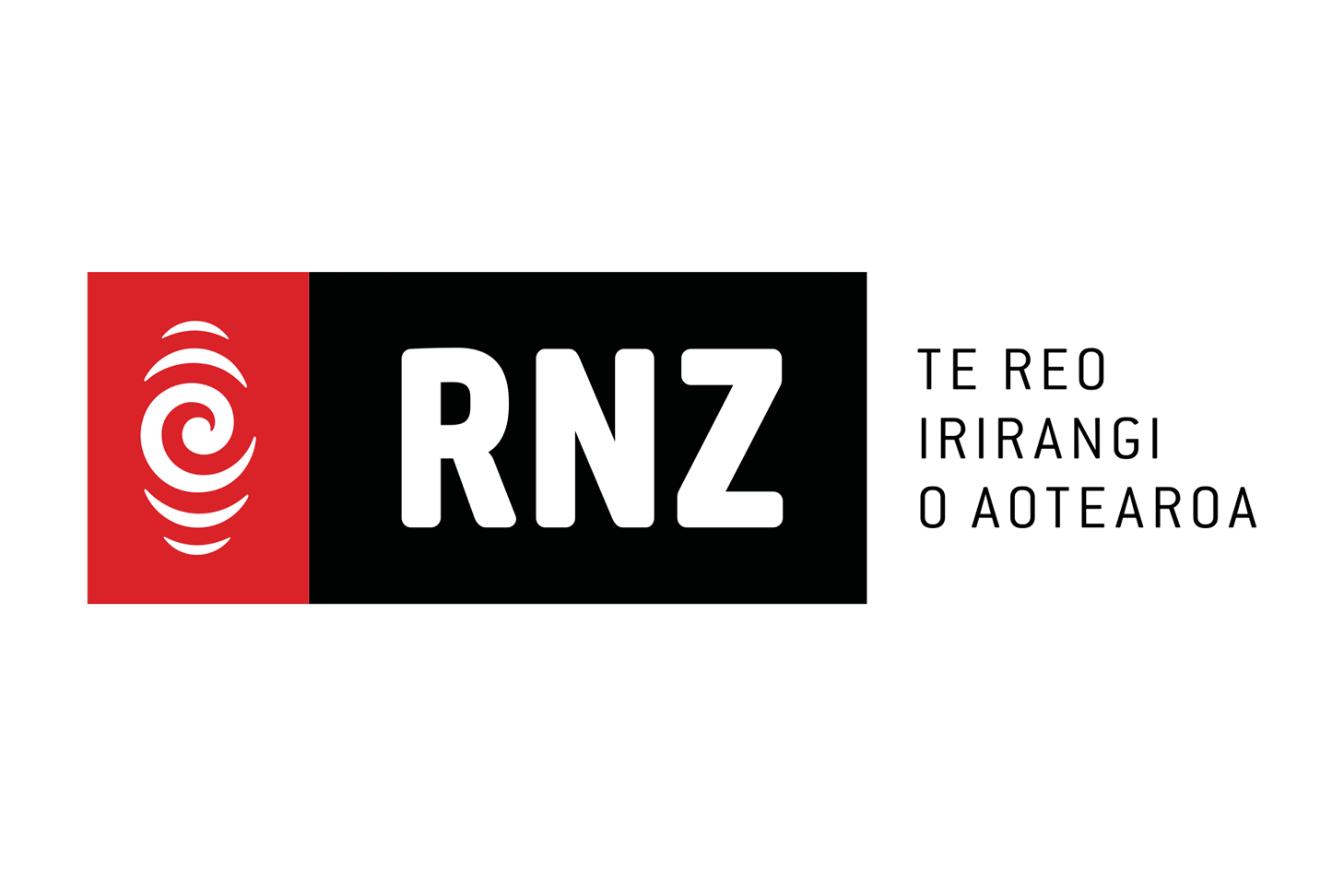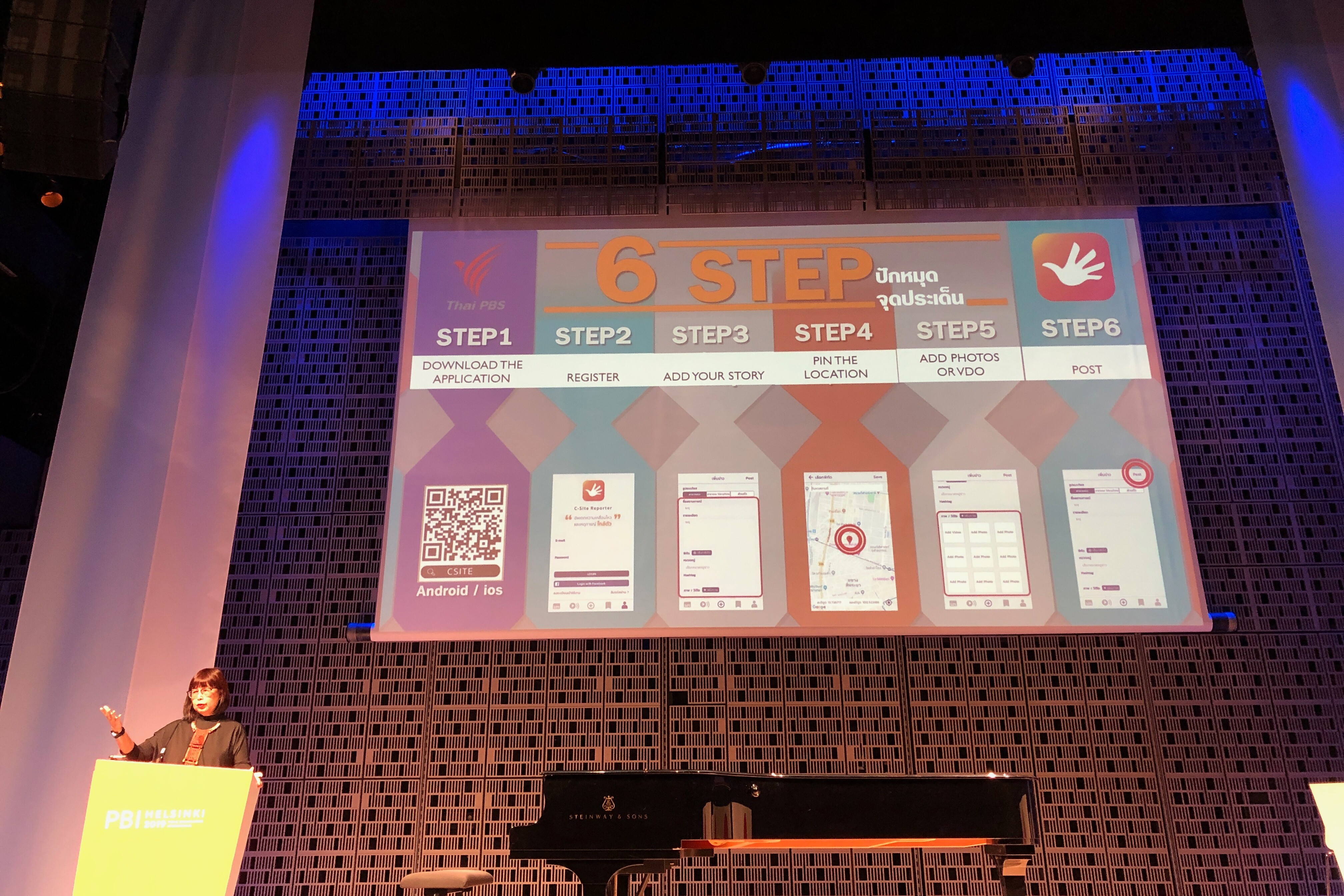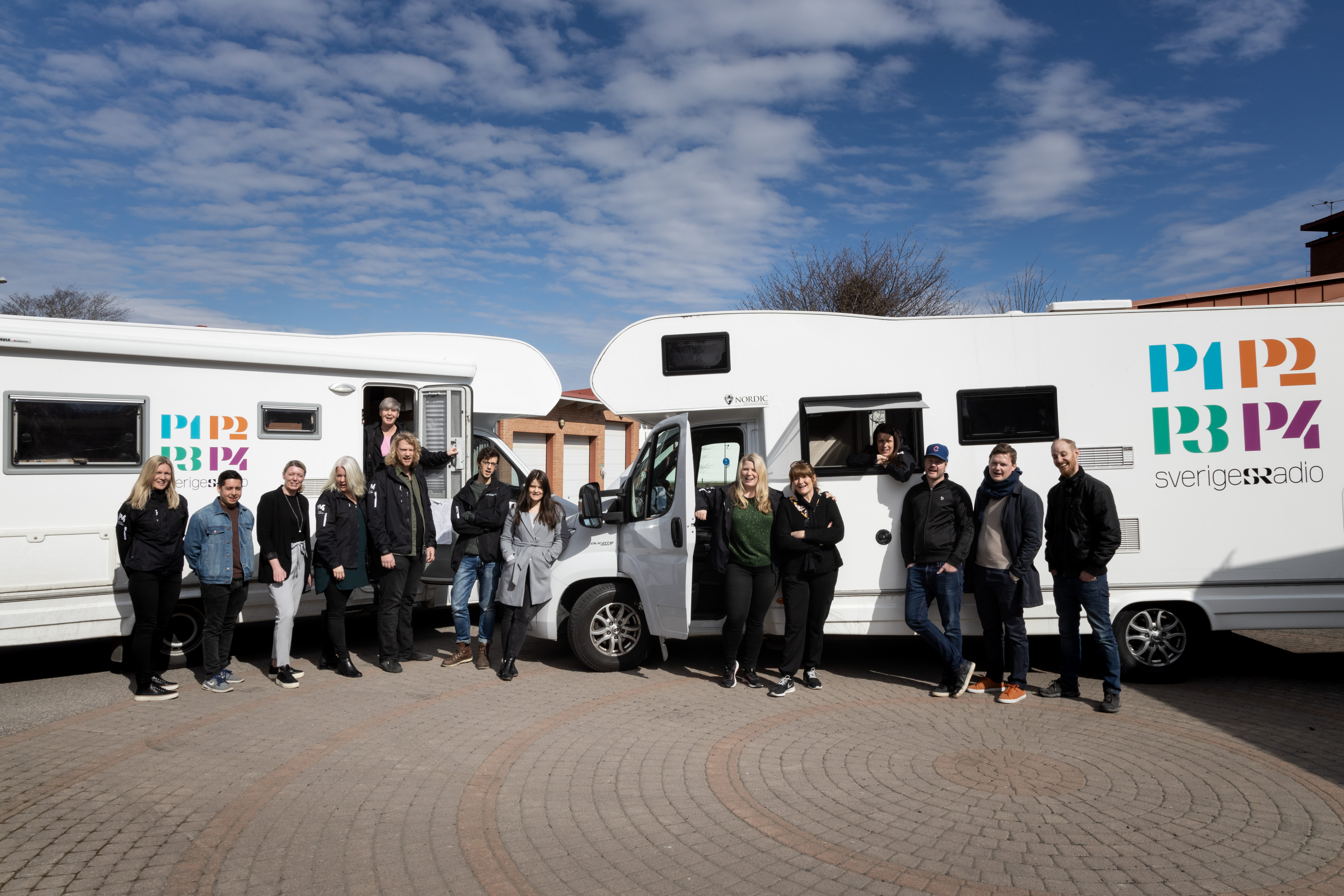Engaging with audiences is essential if public media are to build trust and ensure public accountability. Yet, with COVID-19 massively disrupting our lifestyles, the way we work and interact, how have public media organisations adapted to best engage with their audiences during the pandemic?
By Chloe Howcroft
Technological advancements and multi-platform use have made public media more accessible, transparent and easier to engage with than ever before. Lockdowns during the pandemic have arguably offered opportunities to speed up the process of moving away from “top-down” broadcasting to a two-way, more interactive exchange with audiences.
In July, Marius Dragomir, Director of the Center for Media, Data & Society at the Central European University, wrote that with changing viewing habits, it is extremely vital now, more than ever, for public media to revise how they engage with audiences. He argued that citizens “should be involved in a more meaningful way in public media, in all aspects, programming, funding, management, and that they should be given that choice simply because they pay, directly or indirectly, for the service.”
Read more: Why public media will not survive without real citizen participation
While the COVID-19 pandemic has brought with it obvious challenges for public engagement and participation, such as the inability to hold face-to-face meetings, conduct nationwide tours or broadcast live audience debates, it has also brought with it unique online opportunities for audiences to get involved in shaping what the future of public media could look like. This includes: using public media as a platform for clarifying information about COVID-19; sharing ideas about new programming and sharing their own content.
Shaping the future of public media
From virtual meetings to online surveys, some public broadcasters have adapted their outreach activities virtually as a means of collecting audience feedback and enabling citizens to contribute their thoughts and ideas about the future of public media.
In early September, French public media organisations launched ‘Nos Medias Publics’ (Our Public Media), a public consultation to help develop the future of public media in France. France Télévisions, along with Radio France, TV5 World, France Médias Monde and INA Audiovisuel, are asking participants to share their thoughts on how French public media performed during lockdown and how their media habits may have changed during the pandemic. Broader questions also relate to the role of public media in society, diversity, expectations of their public broadcaster on how they can better inform audiences, and specific questions about programming and content.
In May, Swiss public broadcaster, SRG SSR, launched a similar online survey to gauge what Swiss citizens wanted from their public broadcaster. It formed part of their “Public Value” project, which SRG SSR will use to demonstrate their contribution to society and determine how the organisation can best fulfil its public service mandate.
Citizen engagement and participation are particularly important in the Swiss public media context following the ‘No Billag’ referendum in 2018 in which debate about licence fee exemption – and the very existence of public service media in Switzerland – came to a head.
Dutch public broadcaster, NPO, also recently launched a competition calling for ideas for a new programme for TV. The Dutch broadcaster has been encouraging the public to submit ideas online and, as explained by NPO Chairman, Shila Rijxman, the competition helps “to open up the public broadcaster even more to the public and to give everyone a voice.” According to a press release, it has received over 2,000 submissions since the end of August.
Across the Atlantic, CBC/Radio-Canada hosted their annual public meeting (APM) virtually on 16 September to discuss how they served the public during the COVID-19 pandemic as well as issues surrounding diversity, regional content and combatting disinformation. It gave audience members an opportunity to ask the Board of Directors and the senior executive team questions about the public broadcaster and its future plans.
One of the priorities emphasised in last year’s APM in Nova Scotia was the need for greater engagement with and commitment to creating content for young people – from early years to ‘tweens’. CBC/Radio-Canada recently revealed their new autumn schedule for young people across all platforms, including a new ‘Back-to-School Check In’ special on CBC Kids News, where schoolchildren can share their back-to-school experiences.
Earlier this year, as CBC/Radio-Canada applied for the renewal of its broadcast licence, Canadians were also encouraged by the CRTC, Canada’s media regulator, to share their views on the national broadcaster’s programming in a public consultation, answering questions about whether it adequately reflected the diversity of Canada. A CRTC spokesperson was quoted by CBC News saying, “The CBC is the public broadcaster — it has to reflect the Canadian reality… It’s important for people to have their say.”
The need to involve the public in decision-making and programming was no better demonstrated than for Flemish public broadcaster VRT which, in late 2016-2017, planned to introduce a separate linear TV channel for preschool children. Despite receiving backlash from government and media regulator VRM, VRT launched the channel regardless. But as Hilde Van den Bulck, Professor of Communication Sciences at the University of Antwerpen, said in a recent webinar on Universalism and PSM, a key takeaway from the process was the need to conduct an audience survey in order to gain support. This, she said, would have given the broadcaster an opportunity to gather empirical evidence to demonstrate that this was a service wanted by parents. It would have also made it easier to convince the regulator and the government of its public value.
‘Your questions answered’
With the influx of misinformation surrounding COVID-19, it is essential that public media lead the way in providing reliable and verified news as well as helping audiences make sense of lockdown rules and updates.
Since the start of pandemic, many public media organisations have encouraged viewers to submit questions about COVID-19, often inviting health experts or government ministers onto their platforms to answer questions and clarify new information.
The BBC’s ‘Your questions answered’, France Television’s ‘#OnVousRépond’ and NPR’s ‘The National Conversation With All Things Considered’ are just some of the key examples of live streamed public Q&A features on public media platforms. Meanwhile, ABC News (Australia) reported that in March it received over 45,000 questions about coronavirus and over 15,000 in April.
Today is @BBCNews ‘Coronavirus: Your Questions Answered’ day, with experts and BBC reporters answering your questions all day across TV, radio and online.
Submit a question using #BBCYourQuestions or email yourquestions@bbc.co.uk#coronavirus pic.twitter.com/PmvOlj9I3L
— BBC News Press Team (@BBCNewsPR) March 12, 2020
Audience-led content
While the use of user-generated content (UGC) by public media has also been on the rise, the COVID-19 pandemic has provided another opportunity for audiences to send in their own content and share their stories with their public broadcasters.
From ABC Australia’s sing-a-long features to Ireland’s RTÉ encouraging audiences to share how travel restrictions have left them stranded from home, public broadcasters have encouraged UGC to document the shared experience of life through a global pandemic.
“Ireland has never felt so far away”. Irish people abroad reflect on how the coronavirus pandemic has changed their daily lives and their connection to home… #InThisTogether pic.twitter.com/IuMKEoimQO
— RTÉ News (@rtenews) April 3, 2020
Last month, PBS launched a documentary to capture how the coronavirus pandemic has affected lives across America. Entitled, ‘In This Together’, the video uses personal stories, photographs and videos to document how the pandemic has both disrupted lives but also “brought us all together”. The video is part of the ongoing, national and digital-first storytelling project, An American Portrait, which was launched in light of the public broadcaster’s 50th anniversary. In an interview with Variety, PBS CEO, Paula Kerger, emphasised the role of the media as a “connector” during “a time of isolation”.
More recently, CBC/Radio-Canada’s regional outlets have been encouraging students and parents to share their experiences of returning to school via a Google Form to help with their back-to-school coverage.
In Taiwan, citizen journalists involved in the People’s Post (PeoPo), the citizen journalism initiative of public broadcaster, PTS, have continued to report on the pandemic from different angles and perspectives. As long as the content is relevant and verified, users submit content under the tag ‘COVID19’. Some UGC content is then shared via broadcast news programmes.
Looking ahead
The combination of rapidly changing media consumption patterns and COVID-19 has indeed spurred the greater involvement of and engagement with audiences by many public media organisations. But while this has arguably enabled more accountable, inclusive and relevant services for audiences, a hastened transition due to COVID-19 will have had its challenges. This includes the provision of staff training and enhanced factchecking services as well as the introduction of systems to manage more audience feedback and engagement, all while grappling with the organisational, economic and staff impact of the pandemic.
More long term, the question will be as to how far public engagement will go beyond content production. While the changing relationship with audiences and access to technology certainly allows for greater transparency and accountability, will it allow for greater public involvement in governance? Up until now, there is little being done in this regard according to Dragomir, who blames the politicised nature of governance bodies. “To be really meaningful” he says, “citizens must have a say in three key areas: funding, governance and content production.”
The survival of public media relies on outlets maintaining trust with their audiences. “Meaningful” two-way engagement with them could soon be a key factor in determining how trusted they are.
Heade Image: Family and friends happy moments in video conference at home. Credit: FG Trade/iStock
Related Posts
11th September 2020
Bold changes as new BBC Director General takes office
The BBC’s new Director General proposes…
27th August 2020
RNZ to Expand Local Democracy Reporting Programme
Press Release | Radio New Zealand (RNZ)…



